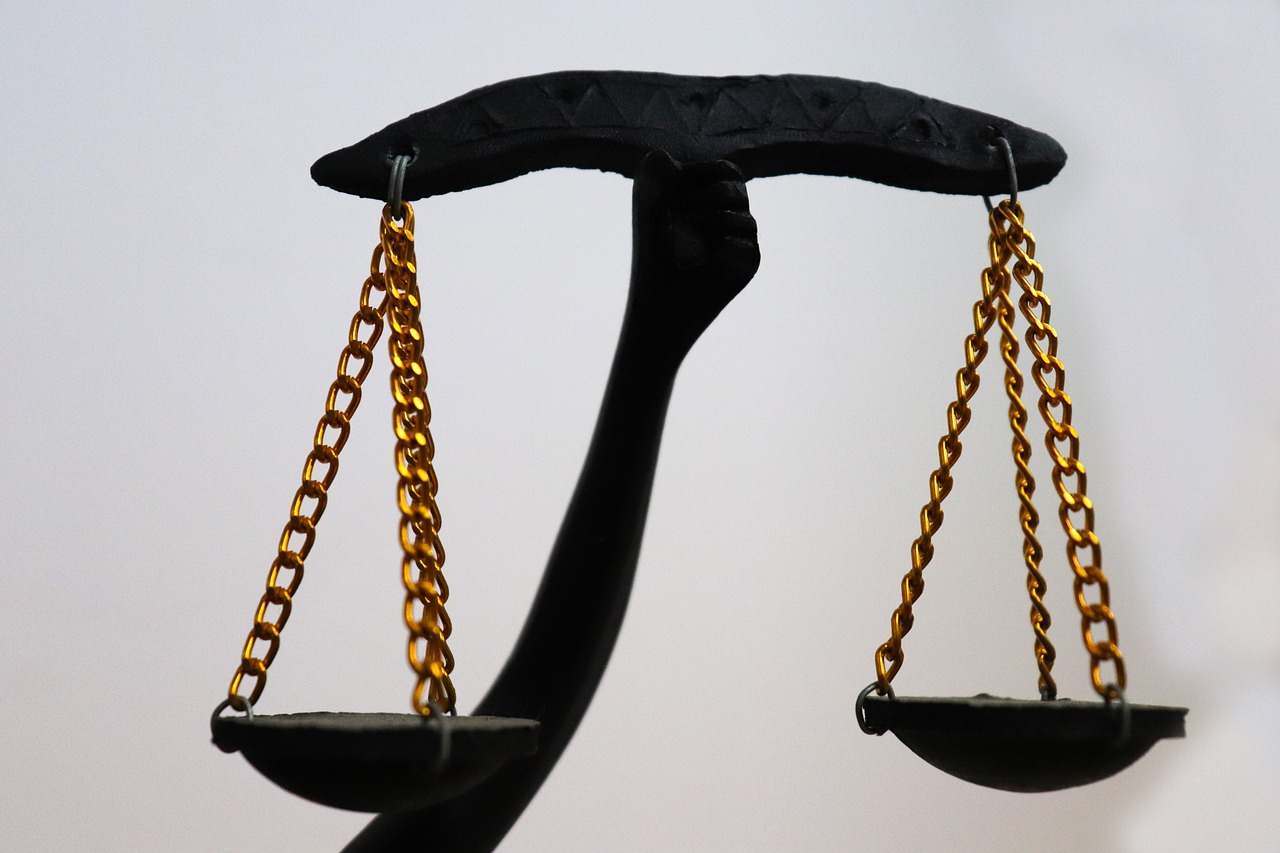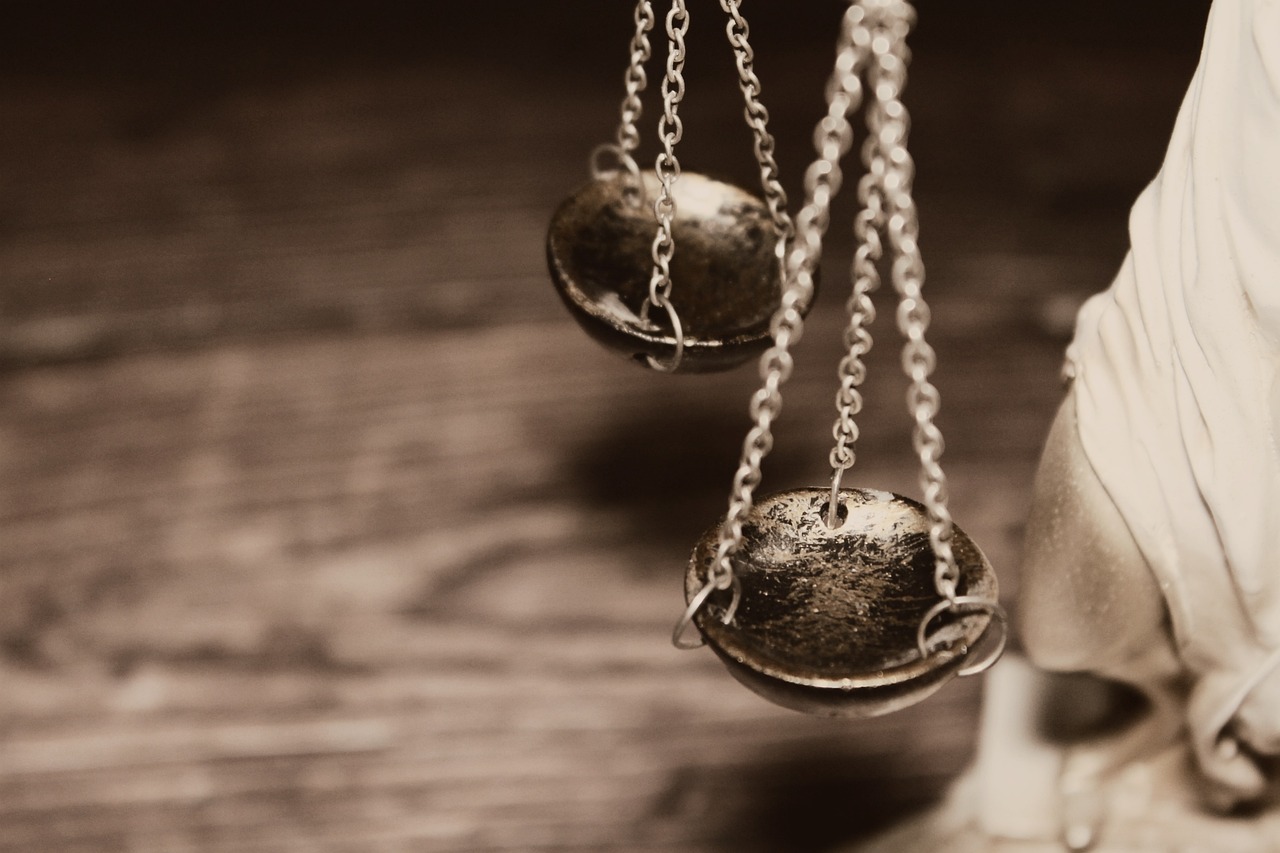
Zero Tolerance for Law Firm Malpractice
Law Firm Mal Practice” podcast delves into the intricate realm of legal ethics, examining cases of professional misconduct and negligence within law firms. Each episode dissects real-life scenarios, from breaches of client trust to mismanagement of cases, offering in-depth analysis and insights into the complexities of legal malpractice.
Hosted by seasoned legal experts and industry insiders, the podcast navigates through the nuances of ethical dilemmas, regulatory frameworks, and the consequences of malpractice. Whether you’re a legal professional, student, or simply intrigued by the legal world, “Law Firm Mal Practice” provides compelling narratives and valuable lessons on maintaining integrity and accountability in the legal profession.


Years of service


news and event
Stay updated on current affairs and happenings with our comprehensive coverage of news and events from around the world.
Navigating the complex world of traffic laws in New York City can be overwhelming, especially in Brooklyn where traffic density and enforcement are particularly strict. If you’ve received a ticket or are facing serious charges like reckless driving or driving with a suspended license, the best decision you can make is to hire traffic lawyers Brooklyn residents trust. Legal experts who specialize in traffic law can provide vital assistance, helping you avoid costly fines, license points, and other penalties.
When you hire traffic lawyers Brooklyn, you’re not just paying for someone to argue on your behalf in court. You’re gaining a partner who understands the ins and outs of local traffic codes and courtroom procedures. Brooklyn traffic courts are busy, and judges often appreciate the presence of an experienced attorney who can present a case clearly and efficiently. This professional representation can make a big difference in whether your charges are reduced, dismissed, or sustained.
Many people assume that paying a ticket is the simplest solution, but this can be a costly mistake. Traffic violations can lead to accumulating points on your license, increased insurance premiums, and in some cases, even a suspended license. To avoid these long-term consequences, it’s advisable to hire traffic lawyers Brooklyn drivers have come to rely on. These attorneys can often negotiate alternative penalties or fight the charge entirely.
One of the key advantages when you hire traffic lawyers Brooklyn is their ability to identify procedural errors or weak evidence in your case. Police officers make mistakes just like anyone else, and an experienced traffic attorney can spot inconsistencies in officer reports, radar calibration errors, or issues with how evidence was collected. In many cases, such flaws can be used to have charges reduced or thrown out completely.
Time is another critical factor that makes it worthwhile to hire traffic lawyers Brooklyn. Taking time off work to appear in court, understand legal documents, and prepare a defense can be overwhelming. Traffic lawyers streamline this process by representing you in court, often without your needing to be there in person. This convenience alone can save hours or even days of time and lost income.
Furthermore, when you hire traffic lawyers Brooklyn, you benefit from their ability to negotiate with prosecutors. While most people don’t have the legal expertise or negotiating power to secure favorable outcomes, a seasoned traffic lawyer can often arrange for plea deals or lower penalties. Their familiarity with local judges, prosecutors, and court staff gives them a distinct advantage in negotiating outcomes that are not readily available to unrepresented individuals.
For commercial drivers and professionals who depend on their driver’s licenses to make a living, it’s even more critical to hire traffic lawyers Brooklyn. A single conviction can jeopardize a career or lead to disciplinary action by an employer. Traffic lawyers understand the high stakes involved and will work diligently to protect your driving record and employment status.
The cost to hire traffic lawyers Brooklyn is often much less than what you’d pay in fines, surcharges, and insurance rate hikes if you handle the matter on your own. While hiring an attorney does involve an upfront fee, the long-term savings can be significant. Many traffic law firms offer flat-rate fees, so you know what to expect without surprises.
Another reason to hire traffic lawyers Brooklyn is peace of mind. Facing a judge and dealing with a legal issue can be intimidating, especially if you’ve never been to traffic court before. Having a skilled advocate by your side reduces stress and ensures that you’re not missing important deadlines or making critical errors. You’ll be better prepared and more confident knowing that your case is being handled by a professional.
Finally, to hire traffic lawyers Brooklyn means investing in your future driving privileges. Repeat violations or serious infractions can result in driver’s license suspension or revocation, which can disrupt your entire life. An experienced lawyer will look at the big picture and help you take steps to avoid further legal issues, such as enrolling in defensive driving courses or negotiating alternative sentencing options.
In conclusion, the decision to hire traffic lawyers Brooklyn can mean the difference between a minor inconvenience and a major legal headache. With their in-depth knowledge of traffic laws, courtroom procedures, and negotiation tactics, traffic attorneys can protect your rights and driving privileges. Don’t take a risk with your driving record—seek professional legal help and face your traffic ticket with confidence.
With greater than 3 million signed up vehicles in New york city and numerous autos going into the state everyday, the traffic regulations that regulate web traffic flow are essential to keeping safety on the streets. Sadly, an infraction of any one of these policies can bring about a fine, points on your record and, in major situations, loss of driving opportunities. If you are provided a ticket, it is essential to speak with a skilled traffic lawyer nyc to guarantee that your rights are not gone against.
A web traffic attorney can assist you stay clear of a lot of the economic repercussions of a New York website traffic infraction by defending your right to drive. Along with the evident penalty connected with the ticket, many web traffic Traffic Lawyers NYC offenses lug the potential for a considerable boost in your car insurance policy premiums and the opportunity of certificate suspension.
Web traffic tickets can have a substantial effect on your day-to-day live, as most individuals require to be able to drive in order to work or to deal with their households. In addition, the loss of your driving advantages may be really challenging for those who rely upon their automobile to make a living such as taxi and Uber motorists or CDL owners. In these cases, the loss of your permit can usually suggest the loss of your task.
While some vehicle drivers pick to just pay their traffic ticket and forget about it, an experienced web traffic attorney can improve your chances of having the fees against you dismissed. When you battle your web traffic ticket, you are testing the credibility of the allegations made by the policeman and arguing that the law was not adhered to properly. By proving that the police officer’s actions were unreasonable, you can persuade the court that you are not guilty of the website traffic crime.
Besides challenging the policeman’s testament, an experienced traffic legal representative can also examine the evidence that existed in case. This can consist of radar analyses, witness statements and any kind of recordings of the case. The web traffic lawyer can additionally look for incongruities and disparities that might deteriorate the proof.
Additionally, a knowledgeable web traffic attorney understands just how to offer the truths of your case in such a way that is rational and influential. The expertise and experience with the courts and prosecutors in your regional web traffic court can additionally boost your chances of having the fees against you lowered or eliminated.
If you are found guilty of a website traffic infraction in New York, the decision will be made by an Administrative Regulation Court who is usually an attorney with special training in automotive and web traffic regulations. The Court will choose your guilt or innocence, determine the appropriate fine and/or punishment and/or revoke or suspend your chauffeur’s permit or registration. It is essential to respond to the ticket within 15-30 days of the date of problem or you will be found guilty by default. Most of the times, if you battle your ticket by employing a seasoned traffic lawyer, you will certainly not need to go to website traffic court.
New York Traffic Ticket Lawyers
1 Fordham Plaza
Bronx, NY 10458
(646) 388-4871
www.trafficlawyersbronx.com
The legal profession stands as a bastion of justice and integrity, with attorneys entrusted to uphold the rule of law and protect their clients’ interests. However, amidst the complexities of legal practice, instances of malpractice can arise, casting shadows over the profession’s ethical standards. Law firm malpractice, characterized by negligent or unethical conduct, not only jeopardizes client trust but also undermines the foundations of the legal system. This article ventures into the intricate terrain of law firm malpractice, examining its root causes, far-reaching consequences, and the imperative need for preventive measures.
Understanding Law Firm Malpractice:
Law firm malpractice encompasses a spectrum of behaviors by legal practitioners that breach professional standards and result in harm or loss to clients. These behaviors may include:
1. Breach of Fiduciary Duty: Attorneys owe a fiduciary duty to act in the best interests of their clients. Breaching this duty through conflicts of interest, self-serving actions, or neglecting client welfare constitutes malpractice.
2. Incompetence or Negligence: Failure to perform legal duties with the requisite competence and diligence can lead to malpractice claims. This may involve inadequate legal research, missed deadlines, or substandard representation, resulting in adverse outcomes for clients.
3. Misrepresentation or Fraud: Deliberate misrepresentation of facts, fabrication of evidence, or misleading statements by attorneys can constitute malpractice, undermining the integrity of the legal process and causing harm to clients and other parties involved.
4. Conflict of Interest: Law firms must navigate complex ethical boundaries to avoid conflicts of interest that compromise their ability to represent clients effectively. Failure to disclose conflicts or representing conflicting interests can lead to malpractice allegations.
Consequences of Law Firm Malpractice:
The consequences of law firm malpractice reverberate across multiple dimensions, affecting clients, legal practitioners, and the broader legal community. For clients, malpractice can result in financial losses, adverse legal outcomes, and profound emotional distress. Trust in the legal system may erode, leading to skepticism and reluctance to seek legal assistance in the future.
Moreover, law firm malpractice tarnishes the reputation of the entire legal profession. Instances of malpractice undermine public confidence in the integrity and ethics of attorneys, potentially deterring individuals from seeking justice through legal channels. This erosion of trust not only impacts the malpracticing firm but also has cascading effects throughout the legal community.
Legal practitioners implicated in malpractice face professional and personal repercussions. In addition to potential disciplinary actions by state bar associations, such as license suspension or revocation, lawyers may experience irreparable damage to their professional reputation. Rebuilding trust and credibility after being associated with malpractice can be a daunting endeavor, impacting career trajectories and personal well-being.
Prevention Strategies:
Preventing law firm malpractice demands a proactive and comprehensive approach, encompassing ethical standards, risk management protocols, and ongoing professional development. Here are some strategies to mitigate the risk of malpractice:
1. Adherence to Ethical Guidelines: Law firms must prioritize adherence to the highest ethical standards, including integrity, honesty, and client confidentiality. Establishing clear ethical guidelines and providing regular training and oversight can help ensure compliance and prevent inadvertent violations.
2. Competence and Due Diligence: Attorneys must maintain competence in their respective areas of practice and exercise due diligence in representing clients. This includes staying abreast of legal developments, conducting thorough research, and seeking assistance or collaboration when facing unfamiliar or complex matters.
3. Conflict Checking Mechanisms: Implementing robust conflict checking mechanisms is essential to identifying and addressing conflicts of interest promptly. Utilizing technology solutions and maintaining comprehensive conflict databases can help law firms navigate ethical dilemmas and avoid malpractice allegations.
4. Communication and Transparency: Open communication with clients regarding case developments, potential risks, and legal strategies fosters trust and reduces the likelihood of misunderstandings or disputes. Lawyers should provide clear and transparent explanations of legal processes and decisions, empowering clients to make informed choices.
5. Continuous Improvement: Embracing a culture of continuous improvement enables law firms to adapt to evolving legal landscapes and emerging risks. Regularly reviewing and updating internal policies, procedures, and training programs ensures that attorneys remain vigilant against malpractice pitfalls.
Conclusion:
Law firm malpractice poses significant challenges to the legal profession, threatening client trust, professional integrity, and the credibility of the legal system. By understanding the root causes of malpractice and implementing proactive prevention strategies, law firms can mitigate risks and uphold the highest standards of ethical conduct and professionalism. Ultimately, fostering a culture of accountability, transparency, and continuous improvement is paramount to safeguarding the interests of clients and preserving the integrity of the legal profession.
In the complex and often high-stakes world of legal practice, the trust between clients and their attorneys is paramount. However, despite the rigorous training and ethical standards within the legal profession, instances of malpractice can occur, posing significant risks to both clients and practitioners alike. Law firm malpractice, characterized by negligent or unethical conduct, can have far-reaching consequences, ranging from financial loss to reputational damage. This article examines the nuances of law firm malpractice, delving into its causes, implications, and strategies for prevention.
Understanding Law Firm Malpractice:
Law firm malpractice encompasses a wide array of unethical or negligent behaviors by legal practitioners that result in harm or loss to their clients. These malpractices can manifest in various forms, including:
1. Breach of Fiduciary Duty: Attorneys are bound by a fiduciary duty to act in the best interests of their clients. Breaching this duty through conflicts of interest, self-serving actions, or prioritizing personal gain over client welfare constitutes malpractice.
2. Incompetence or Negligence: Failure to exercise the level of competence and diligence expected of a reasonable attorney can lead to malpractice claims. This may involve inadequate legal research, missed deadlines, or substandard representation, resulting in adverse outcomes for the client.
3. Misrepresentation or Fraud: Deliberate misrepresentation of facts, fabrication of evidence, or misleading statements by attorneys can constitute malpractice, undermining the integrity of the legal process and causing harm to clients and other parties involved.
4. Conflict of Interest: Law firms must navigate complex ethical boundaries to avoid conflicts of interest that compromise their ability to represent clients effectively. Failure to disclose conflicts or representing conflicting interests can lead to malpractice allegations.
Consequences of Law Firm Malpractice:
The consequences of law firm malpractice can be severe and multifaceted, impacting clients, legal practitioners, and the broader legal community. For clients, experiencing malpractice can result in financial losses, adverse legal outcomes, and emotional distress. Trust in the legal system may be eroded, leading to disillusionment and reluctance to seek legal assistance in the future.
Moreover, law firm malpractice tarnishes the reputation of the entire legal profession. Instances of malpractice undermine public confidence in the integrity and ethics of attorneys, potentially deterring individuals from seeking legal recourse when needed. This erosion of trust not only affects the malpracticing firm but also has ripple effects throughout the legal community.
Legal practitioners implicated in malpractice face professional and personal repercussions. In addition to potential disciplinary actions by state bar associations, such as license suspension or revocation, lawyers may suffer irreparable damage to their professional reputation. Rebuilding trust and credibility after being associated with malpractice can be a formidable challenge, impacting career prospects and personal well-being.
Prevention Strategies:
Preventing law firm malpractice requires a proactive and multifaceted approach that encompasses ethical standards, risk management protocols, and ongoing professional development. Here are some strategies to mitigate the risk of malpractice:
1. Adherence to Ethical Guidelines: Law firms must prioritize adherence to the highest ethical standards, including integrity, honesty, and client confidentiality. Establishing clear ethical guidelines and providing regular training and oversight can help ensure compliance and prevent inadvertent violations.
2. Competence and Due Diligence: Attorneys must maintain competence in their respective areas of practice and exercise due diligence in representing clients. This includes staying abreast of legal developments, conducting thorough research, and seeking assistance or collaboration when facing unfamiliar or complex matters.
3. Conflict Checking Mechanisms: Implementing robust conflict checking mechanisms is essential to identifying and addressing conflicts of interest promptly. Utilizing technology solutions and maintaining comprehensive conflict databases can help law firms navigate ethical dilemmas and avoid malpractice allegations.
4. Communication and Transparency: Open communication with clients regarding case developments, potential risks, and legal strategies fosters trust and reduces the likelihood of misunderstandings or disputes. Lawyers should provide clear and transparent explanations of legal processes and decisions, empowering clients to make informed choices.
5. Continuous Improvement: Embracing a culture of continuous improvement enables law firms to adapt to evolving legal landscapes and emerging risks. Regularly reviewing and updating internal policies, procedures, and training programs ensures that attorneys remain vigilant against malpractice pitfalls.
Conclusion:
Law firm malpractice poses significant challenges to the legal profession, threatening client trust, professional integrity, and the credibility of the legal system. By understanding the root causes of malpractice and implementing proactive prevention strategies, law firms can mitigate risks and uphold the highest standards of ethical conduct and professionalism. Ultimately, fostering a culture of accountability, transparency, and continuous improvement is essential to safeguarding the interests of clients and preserving the integrity of the legal profession.
In the realm of legal practice, the trust between a client and their attorney is sacrosanct. However, despite the ethical standards and rigorous training within the legal profession, instances of malpractice can occur, casting shadows over the integrity of law firms. Law firm malpractice, characterized by negligent or unethical conduct, not only undermines the trust essential for the legal system but also imposes severe consequences on both clients and practitioners. This article delves into the intricacies of law firm malpractice, exploring its implications, causes, and preventive measures.
Understanding Law Firm Malpractice:
Law firm malpractice encompasses a spectrum of unethical or negligent behaviors by legal practitioners that result in harm or loss to their clients. These malpractices can manifest in various forms, including but not limited to:
1. Breach of Fiduciary Duty: Lawyers owe a fiduciary duty to their clients, requiring them to act in the client’s best interest. Breaching this duty through conflicts of interest, self-dealing, or prioritizing personal gains over client welfare constitutes malpractice.
2. Incompetence or Negligence: Failure to perform legal duties with the level of competence and diligence expected of a reasonable attorney can lead to malpractice claims. This may involve inadequate research, missed deadlines, or substandard representation, resulting in adverse outcomes for the client.
3. Misrepresentation or Fraud: Deliberate misrepresentation of facts, fabrication of evidence, or misleading statements by attorneys can constitute malpractice, undermining the integrity of the legal system and causing harm to clients and other parties involved.
4. Conflict of Interest: Law firms must navigate complex ethical boundaries to avoid conflicts of interest that compromise their ability to represent clients effectively. Failure to disclose conflicts or representing conflicting interests can lead to malpractice allegations.
Consequences of Law Firm Malpractice:
The repercussions of law firm malpractice extend far beyond financial losses or legal sanctions. For clients, experiencing malpractice can shatter trust in the legal system and inflict significant emotional distress. Financial ramifications, including loss of assets or settlements, can exacerbate the already stressful situation, leaving clients disillusioned and seeking recourse.
Moreover, law firm malpractice tarnishes the reputation of the entire legal profession. Public perception of attorneys as guardians of justice diminishes when instances of malpractice come to light. This erosion of trust not only affects the malpracticing firm but also undermines confidence in the legal system as a whole, potentially deterring individuals from seeking legal assistance when needed.
Legal practitioners implicated in malpractice face professional and personal consequences. Aside from potential disciplinary actions by state bar associations, including license suspension or revocation, lawyers may suffer irreparable damage to their professional reputation. Rebuilding trust and credibility after being associated with malpractice can be a daunting task, impacting career prospects and personal well-being.
Prevention Strategies:
Preventing law firm malpractice requires a multifaceted approach encompassing ethical standards, risk management protocols, and continuous professional development. Here are some strategies to mitigate the risk of malpractice:
1. Adherence to Ethical Guidelines: Law firms must uphold the highest ethical standards, prioritizing integrity, honesty, and client confidentiality. Establishing robust ethical guidelines and ensuring compliance through regular training and oversight can prevent inadvertent violations that may lead to malpractice.
2. Competence and Due Diligence: Attorneys must maintain competence in their respective areas of practice and exercise due diligence in representing clients. This includes staying abreast of legal developments, conducting thorough research, and seeking assistance or collaboration when facing unfamiliar or complex matters.
3. Conflict Checking Mechanisms: Implementing rigorous conflict checking mechanisms is crucial to identifying and addressing conflicts of interest promptly. Utilizing technology solutions and maintaining comprehensive conflict databases can help law firms navigate ethical dilemmas and avoid malpractice allegations.
4. Communication and Transparency: Open communication with clients regarding case developments, potential risks, and legal strategies fosters trust and reduces the likelihood of misunderstandings or disputes. Lawyers should provide clear and transparent explanations of legal processes and decisions, empowering clients to make informed choices.
5. Continuous Improvement: Embracing a culture of continuous improvement enables law firms to adapt to evolving legal landscapes and emerging risks. Regularly reviewing and updating internal policies, procedures, and training programs ensures that attorneys remain vigilant against malpractice pitfalls.
Conclusion:
Law firm malpractice poses significant challenges to the legal profession, jeopardizing client trust, professional integrity, and the credibility of the legal system. By understanding the root causes of malpractice and implementing proactive prevention strategies, law firms can mitigate risks and uphold the highest standards of ethical conduct and professionalism. Ultimately, fostering a culture of accountability, transparency, and continuous improvement is essential to safeguarding the interests of clients and preserving the integrity of the legal profession.



![350+ Stunning Forest Pictures [HQ] | Download Free Images on Unsplash](https://plus.unsplash.com/premium_photo-1664300792059-863ccfe55932?fm=jpg&q=60&w=3000&ixlib=rb-4.1.0&ixid=M3wxMjA3fDB8MHxzZWFyY2h8MXx8Zm9yZXN0fGVufDB8fDB8fHww)